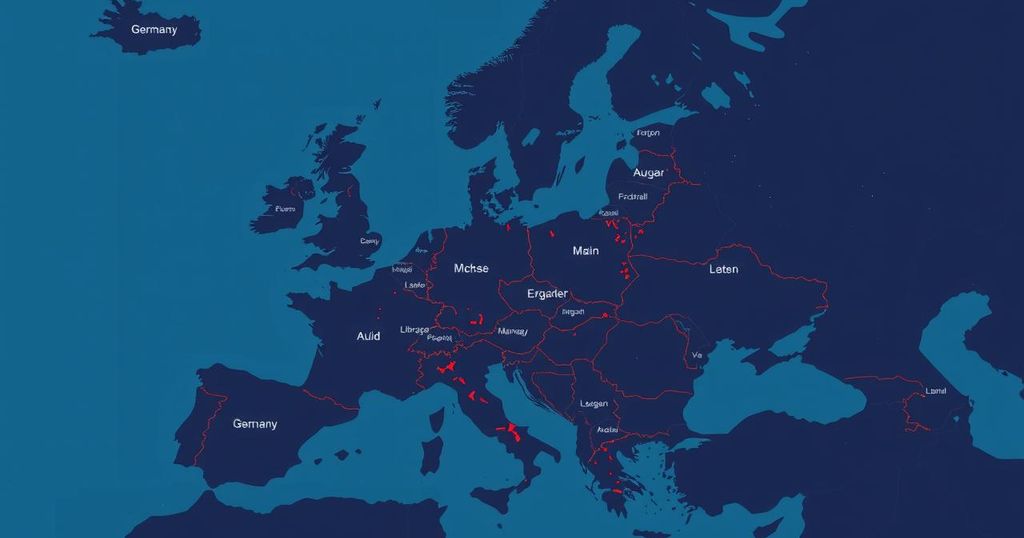Germany Schedules Snap Election for February Following Coalition Collapse

Germany will conduct a snap election on February 23 following the breakdown of Chancellor Olaf Scholz’s coalition. His party and the opposition have agreed to this early election, sparking renewed political campaigns. Scholz aims to secure a second term despite current low polling, while other party leaders are also positioning themselves for leadership roles. The political landscape is shifting as parties prepare for an intense electoral battle amid economic challenges.
Germany is set to hold a snap election on February 23 following the collapse of Chancellor Olaf Scholz’s governing coalition. Discussions among lawmakers revealed an agreement between Scholz’s Social Democrats and the opposition Christian Democratic Union for this early election, several months before the previously scheduled date. As political campaigns intensify, the immediate aftermath of the coalition’s failure has seen a reshuffle of key leadership roles and strategic positioning among the parties vying for power in the new government. Chancellor Scholz, after dismissing his finance minister and triggering the coalition’s dissolution, has expressed his desire to campaign for re-election. Despite current polling showing his party with only 16 percent support, Scholz believes he can secure a second term amid the challenges posed by a minority government. The opposition, capitalizing on the uncertainty, asserts that an earlier election is necessary due to the inability of the current government to enact laws effectively. In light of recent developments, a growing number of potential candidates within the coalition are emerging, including the Green Party’s Robert Habeck. He aims to challenge Scholz for the chancellery while seeking support for his environmental policies. The Free Democratic Party, led by Christian Lindner, is also reorienting its strategy to gain more influence in the next government. Tensions surrounding the timing of the elections have surfaced, with leaders advocating for a quick resolution to avoid complications related to the electoral infrastructure and public sentiment. Scholz’s decision to advance the election date reflects a shift in approach, suggesting a response to both internal and external pressures within the German political landscape. The steps taken now may set the tone for not only the upcoming election but the future of governance in Germany as momentum builds for intense campaigning.
The political climate in Germany has been significantly affected by the recent collapse of Chancellor Olaf Scholz’s coalition government. The shift in power dynamics has compelled various political factions to realign, sparking discussions for a snap election that was not initially anticipated. The agreement for the early election indicates a response to the growing need for renewed leadership as recent governance challenges highlight the urgent requirement for effective decision-making in light of Germany’s economic struggles and the impending effects of international political shifts, including a potential second term for President Donald J. Trump.
The upcoming snap election in Germany reflects significant political upheaval, stemming from the collapse of Chancellor Scholz’s coalition government. The February 23 election date reinforces the necessity for decisive leadership as parties intensify their campaign efforts. With the potential for a reshaping of Germany’s political landscape, the implications of this election reach far beyond domestic policies, intertwining with global political dynamics that are poised to impact the country’s future governance.
Original Source: www.nytimes.com








